Four, the record: Inside the race to smash the Individual Pursuit four-minute barrier
The individual pursuit may no longer be an Olympic event but the race to break the four-minute barrier has taken on a new urgency
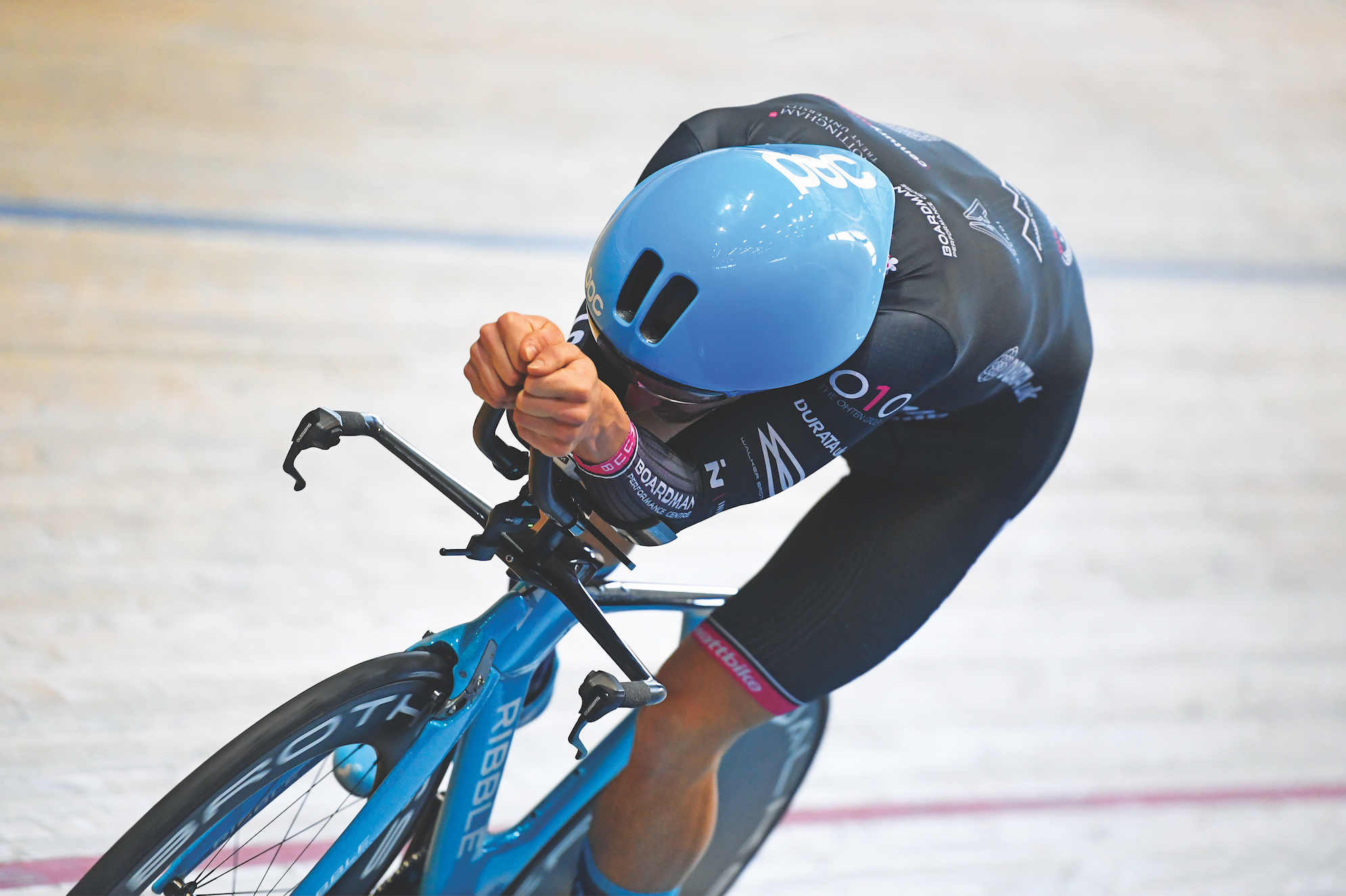
Huub-Wattbike have turned the velodrome into a laboratory
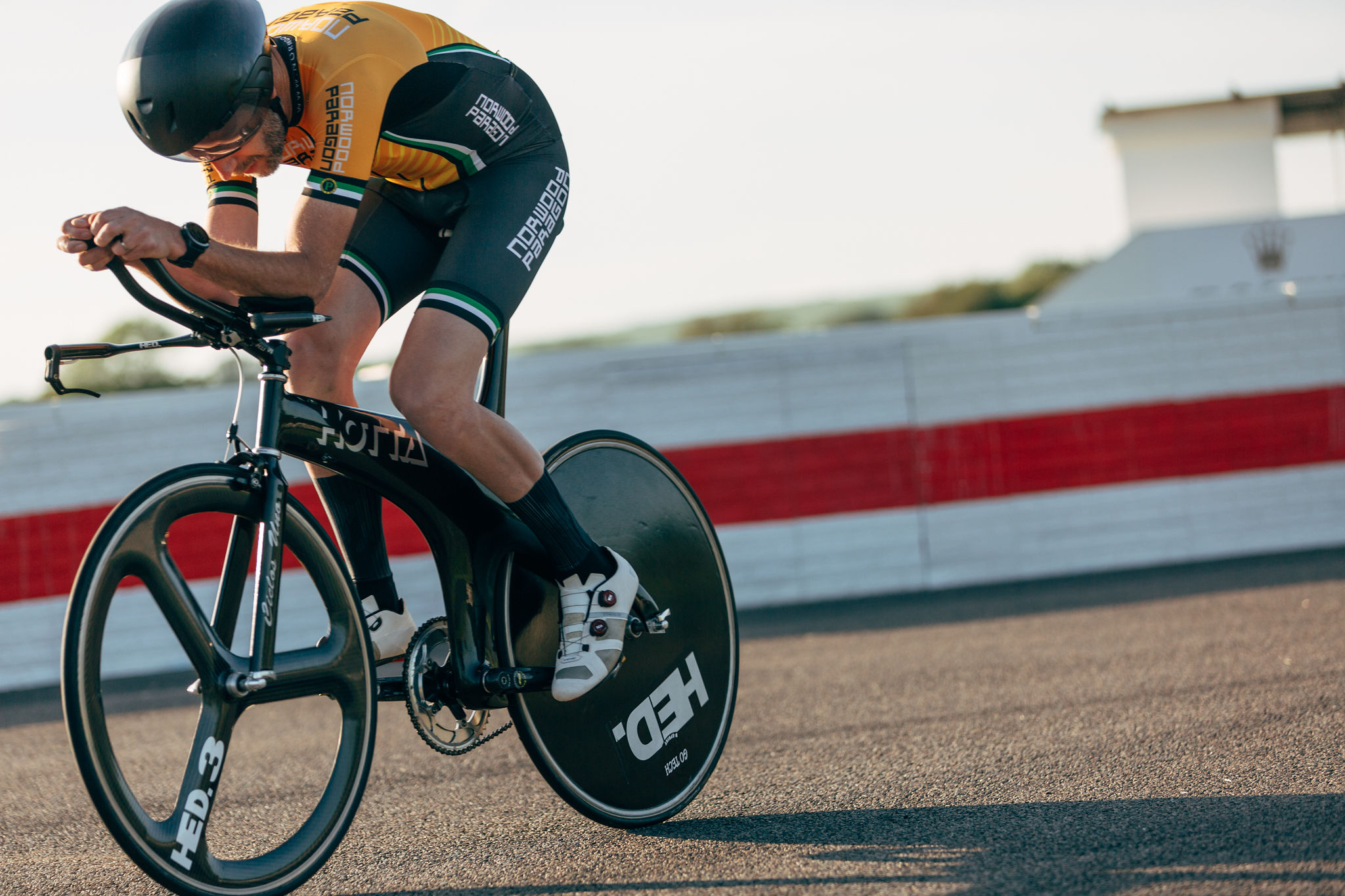
Away from the spotlight of the WorldTour or the Olympics, in spare bedrooms and on massive spreadsheets, a classic rivalry is brewing.
On one side, one of the greatest athletes ever to sling his leg over a top tube, on the other a team of British underdogs with physical talent but more importantly, higher levels of stealth and cunning.
It’ll come to a head soon — in April the Huub-Wattbike team heads to the high-altitude Bolivian Cochabamba velodrome with the aim of going sub-four minutes for the 4km individual pursuit — but can Filippo Ganna, the triple world champion and holder of the current world record of 4-02.647 get there first when he rides the Track World Championships in Berlin at the end of February?
The race to break the four-minute barrier has taken a long time to catch fire. In other sports, breaking a barrier is an inexorable and inevitable process, with excitement building steadily until an athlete at the top of their game, a Roger Bannister or Eliud Kipchoge, gives it one final nudge.
But in the men’s individual pursuit, the story couldn’t be more different.
Ten years ago it seemed unlikely that anyone would ever go under four minutes. The ‘unbreakable’ record of 4-11.114 had been set in 1996 by Chris Boardman in the superman position. With his arms stretched out in front of him, Boardman had a huge aerodynamic advantage and unsurprisingly the UCI banned the position soon afterwards.
>>> Aerocoach announces new national series of road bike-only time trials
Get The Leadout Newsletter
The latest race content, interviews, features, reviews and expert buying guides, direct to your inbox!
The mercurial Australian Jack Bobridge, now serving a prison sentence for drug dealing, finally crept inside Boardman’s time in 2011 with his 4-10.534. But by then the individual pursuit had been snuffed out as an Olympic event as it had been axed from the London 2012 schedule. The record appeared to sit on the shelf, gathering dust with little interest from international federations, who had minimal incentive and therefore offered no support for any riders to take it on.
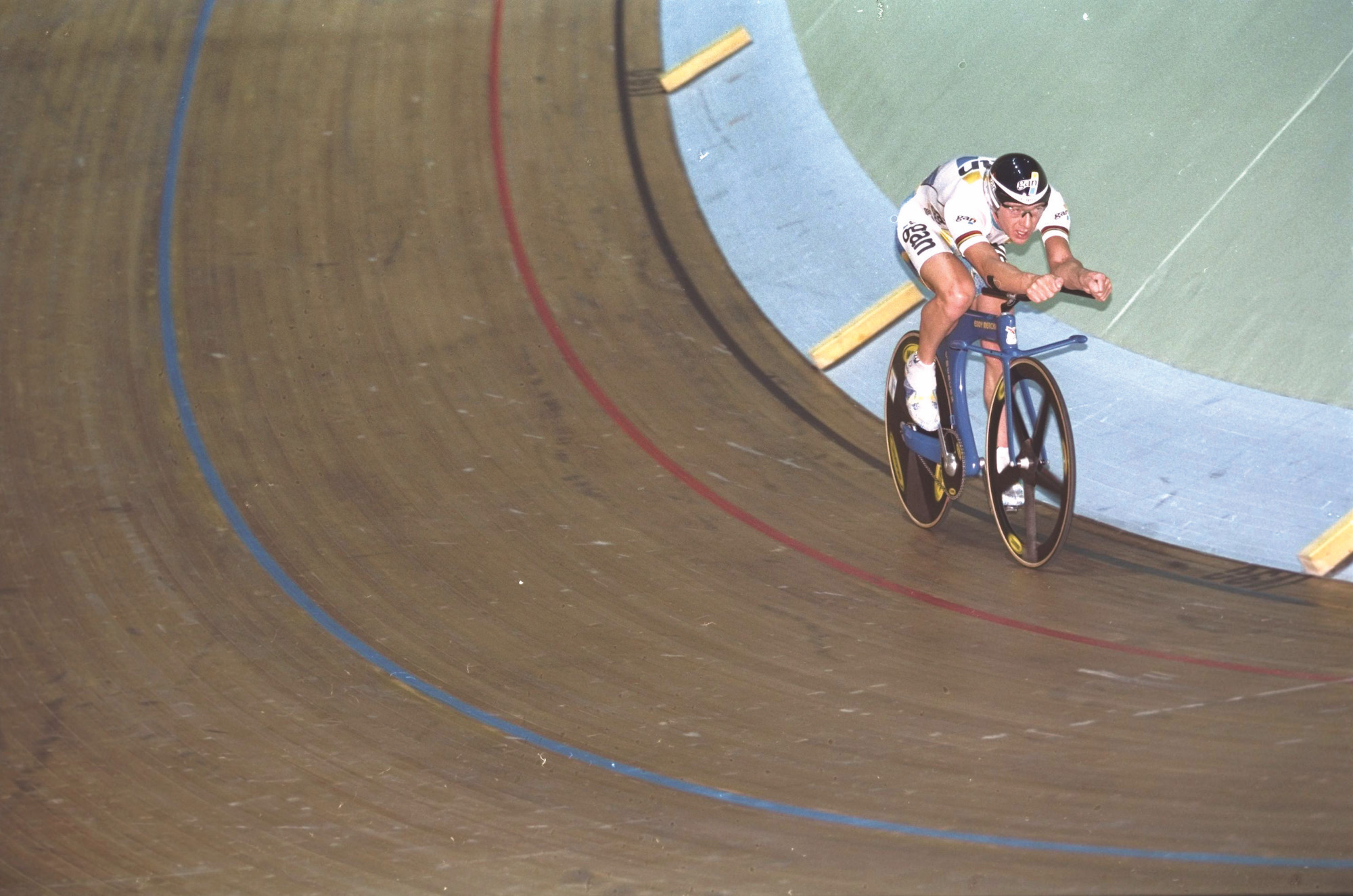
But then something unexpected happened. In 2017, an unknown American with a handlebar moustache called Ashton Lambie took more than three seconds off Bobridge’s record during the Pan-American Games held at the Aguascalientes track at 1,800 metres of altitude in Mexico.
Lambie went on to lower his own record twice more in 2019, this time at the Cochabamba track in Bolivia at 2,500 metres above sea level. Less than two months later, on November 3, 2019, the three-time individual pursuit world champion Filippo Ganna rode a scorching 4-04 in qualifying at the Minsk round of the UCI Track World Cup, and then clocked an even faster 4-02.647 in the final.
Between 2017 and 2019 the individual pursuit record had been lowered five times, compared to once between 1996 and 2017. Why the resurgent interest and falling times despite the IP remaining out of the Olympics and more or less abandoned by the top track cycling nations including Great Britain?
"Filippo Ganna has been world champion multiple times and no one really cares," says Xavier Disley, head of consultant Aerocoach, which supplies Ganna’s custom bars and chainrings. "The way Ganna has ridden his Worlds victories is impressive. He turns the screw. His pacing strategy starts very slow and then he just ruins everyone towards the end. The guy’s a monster.
"But it’s just another event at the World Championships. Whereas for us, for British people, it’s the Olympics [that matters]. However, if you break a world record, then everybody sits up and takes notice. I think what did it was Ashton Lambie’s record. Everyone thought Bobridge had it shelved, he’d gone quicker than Boardman, but then when Ashton broke it at altitude people started thinking about altitude a bit more, it was starting to be seen in the same terms as the Hour record again. Victor Campanaerts did his Hour record at altitude last April, so it was a nice segue into bringing the individual pursuit back into people’s consciousness."
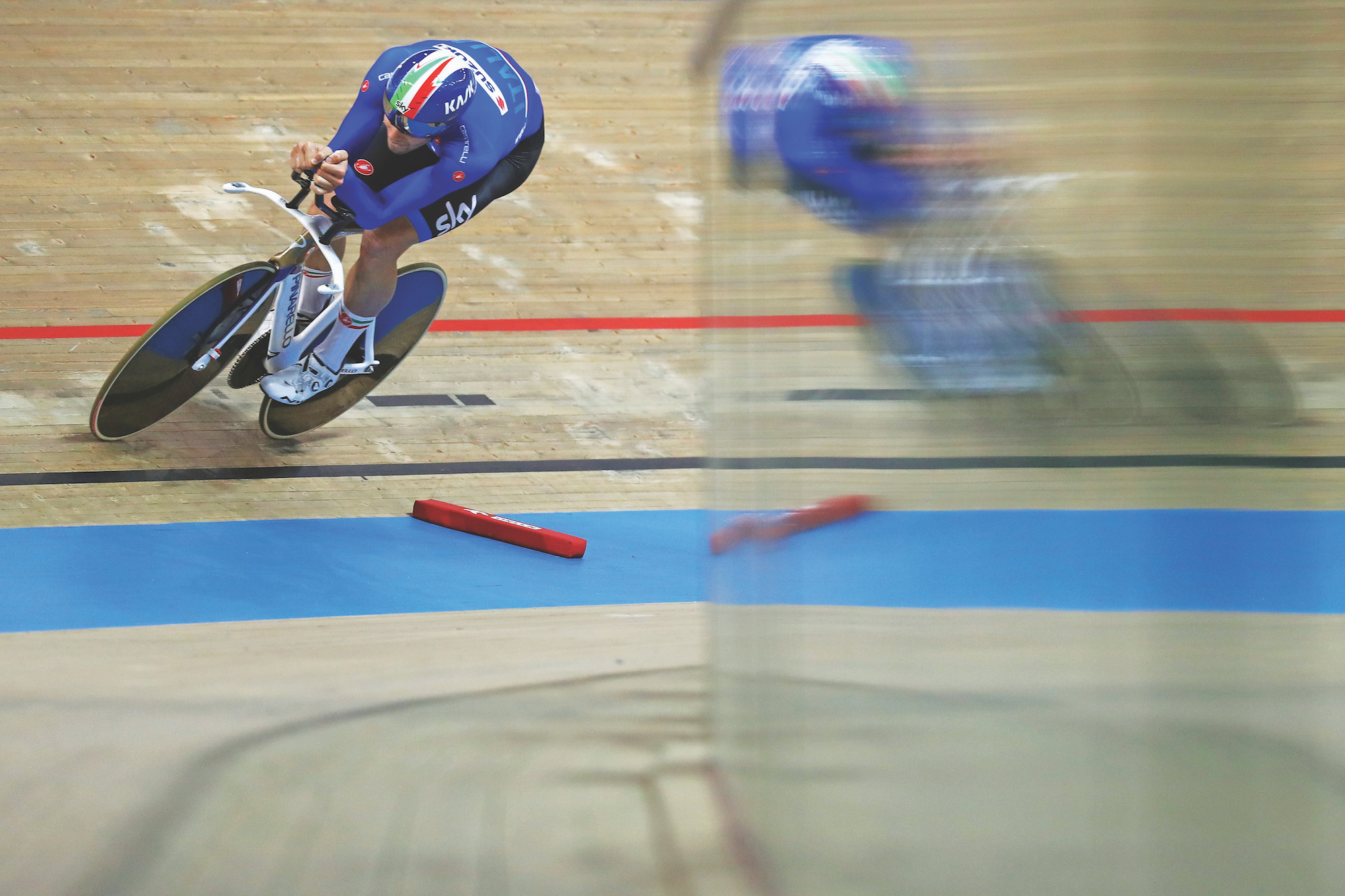
Lambie, since snapped up by Huub-Wattbike, will go back to Cochabamba with the team and will attempt to be the first man under four minutes. He may find himself riding against Huub-Wattbike team-mate John Archibald, who held the IP sea-level world record of 4-09.584 — the only British man to have gone faster than Boardman — before Ganna took it in Minsk in November. Archibald finished second to Ganna that day, beating Lambie into third place, so either man could be first to go sub-four. But is it really a done deal that the four-minute barrier will be broken in Bolivia in April?
"On paper it’s achievable," says Dan Bigham, Huub-Wattbike’s resident aero-mastermind. "A lot of people have gone to altitude before for records and failed, or at least not achieved what they thought was possible. So we’ve done a lot of research around that. I imagine there are going to be a few pitfalls but I’m reasonably confident that on the right day one of those two can go and do that. It’s not going to be easy but the numbers say it is plausible.
"There are a lot of interesting things that affect aerodynamics at altitude that we are going to have to think about and account for. We talk about aero and CdA [aerodynamic drag of rider and bike], but the power that the rider puts in, you can maximise that if you’re very smart about your preparation. We’ve already done one altitude camp, we’ve got two more coming, we’ve got an altitude room at the team house — you call it a tent but it’s a bouncy castle really — a 2.5m cube. A lot of it is about reducing the time taken to become a bit more adapted when we go on to the camps. We’ll spend a fair amount of time in Bolivia beforehand but we want to make sure we can maximise our training when we go up to 2,500 metres on these camps.
"It’s about a 50-60 watt saving at 2,500 metres but it’s very rider dependent. Air density drop-off contributes well over 100 watts. But then some people might lose five, six, seven per cent [of power], others might lose 15-20 per cent. We have a good idea so far from our altitude camps but unfortunately that does vary. The other thing is the heat — it can get quite warm there, 30°C, so that can impact on your power as well."
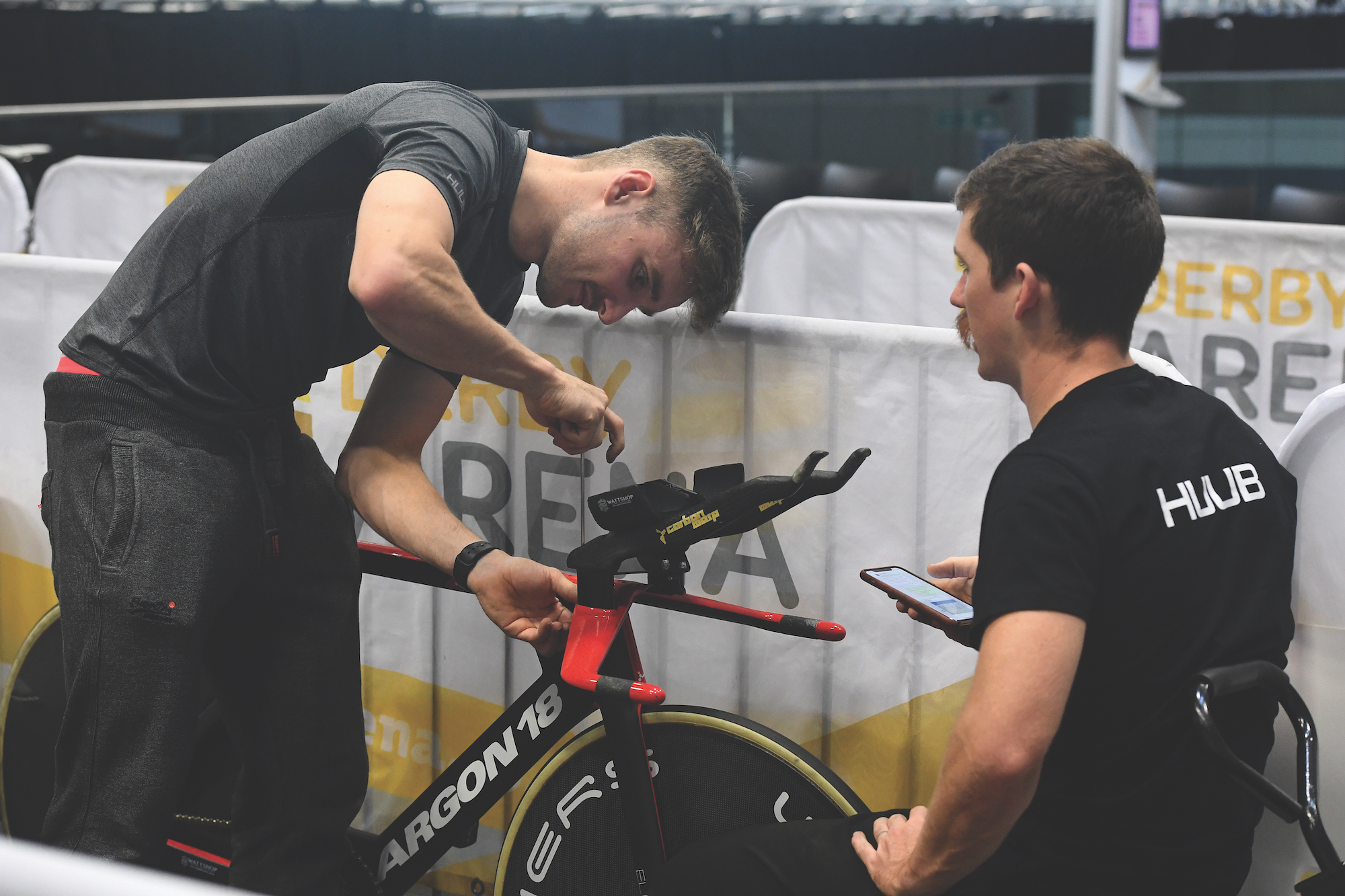
Meanwhile, Ganna rides the individual pursuit in the World Championships in Berlin at the end of February. Can he go sub-four minutes there?
"I think if anyone can go sub-four at sea level he can," Bigham says. "The track in Berlin is reasonably quick, so he could do it. I would be surprised if he does it there, but you never know."
Ganna, training with Ineos in Gran Canaria in January and suffering from a knee niggle when we spoke to him, claimed breaking four minutes wasn’t his main objective: "At the moment the training is longer for road racing. When we get to Berlin we’ll see if breaking four minutes is possible. I’ll try. But since it’s not an Olympic event and we are building up to Tokyo we’re training on the track mainly for the team pursuit.
"To break four minutes everything has to be perfect — the right temperature, air pressure. We would need the best conditions possible." However, Ganna ruled out going to altitude for an attempt: "I want to break it at sea level."
Bigham recounts a conversation between Ganna, Archibald and Lambie on their way to the podium in Minsk
in November where Ganna had, in Bigham’s words, "stuffed them" after he broke the world record and caught Archibald in the final with Lambie finishing third: "Ganna said to Ashton, 'Oh, so you guys are going up to altitude?' Ashton quipped, 'Yeah, I’m going there to get my record back.'"
This feature originally appeared in the print edition of Cycling Weekly, on sale in newsagents and supermarkets, priced £3.25.

Thank you for reading 20 articles this month* Join now for unlimited access
Enjoy your first month for just £1 / $1 / €1
*Read 5 free articles per month without a subscription

Join now for unlimited access
Try first month for just £1 / $1 / €1
Simon Smythe is a hugely experienced cycling tech writer, who has been writing for Cycling Weekly since 2003. Until recently he was our senior tech writer. In his cycling career Simon has mostly focused on time trialling with a national medal, a few open wins and his club's 30-mile record in his palmares. These days he spends most of his time testing road bikes, or on a tandem doing the school run with his younger son.
-
 Pauline Ferrand-Prévot takes a sensational home victory in Paris-Roubaix
Pauline Ferrand-Prévot takes a sensational home victory in Paris-RoubaixFrenchwoman wins her Hell of the North debut as Letizia Borghesi takes second place and Lorena Wiebes is third
By Peter Cossins Published
-
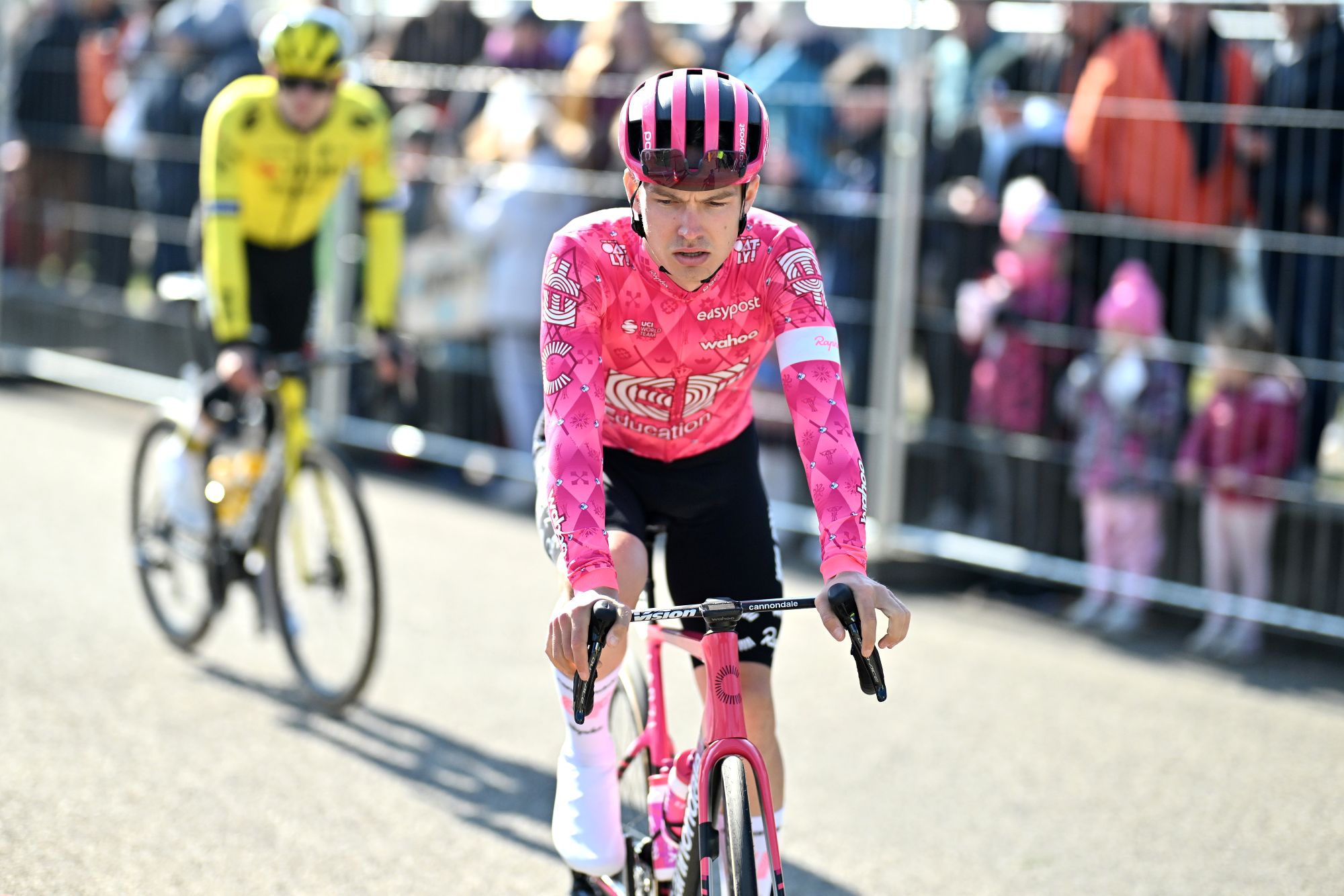 'It's the only race I’m a bit scared of' - Jack-Rootkin Gray on his Paris-Roubaix debut
'It's the only race I’m a bit scared of' - Jack-Rootkin Gray on his Paris-Roubaix debut22-year-old is in his second year with EF Education-EasyPost after making the move up the pyramid from Saint Piran
By Tom Thewlis Published
-
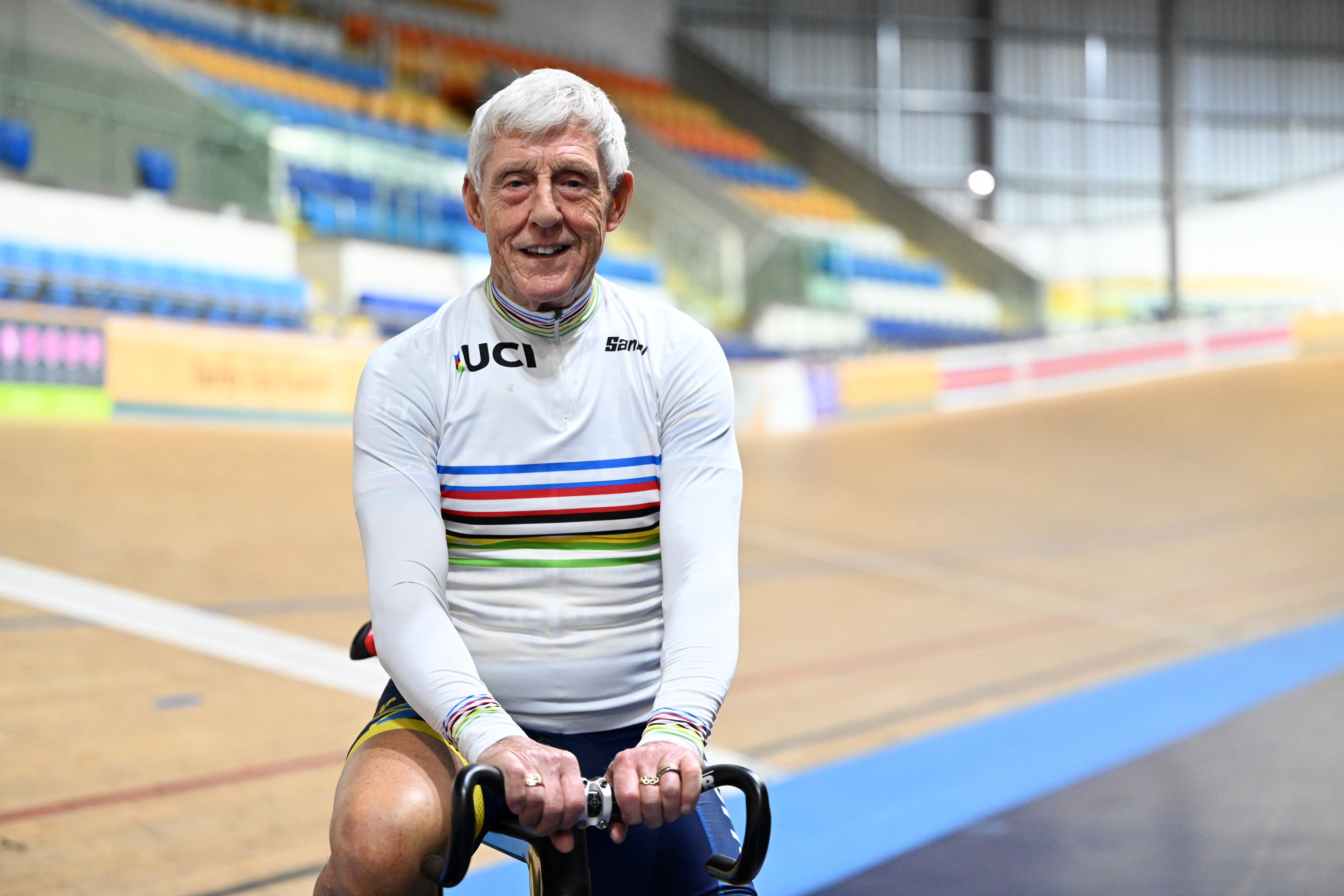 'They thought I was dying' - Meet the 80-year-old Brit who won four world titles weeks after leaving hospital
'They thought I was dying' - Meet the 80-year-old Brit who won four world titles weeks after leaving hospitalA serious health scare couldn't keep Olympic track cyclist Geoff Cooke away from the boards
By Tom Davidson Published
-
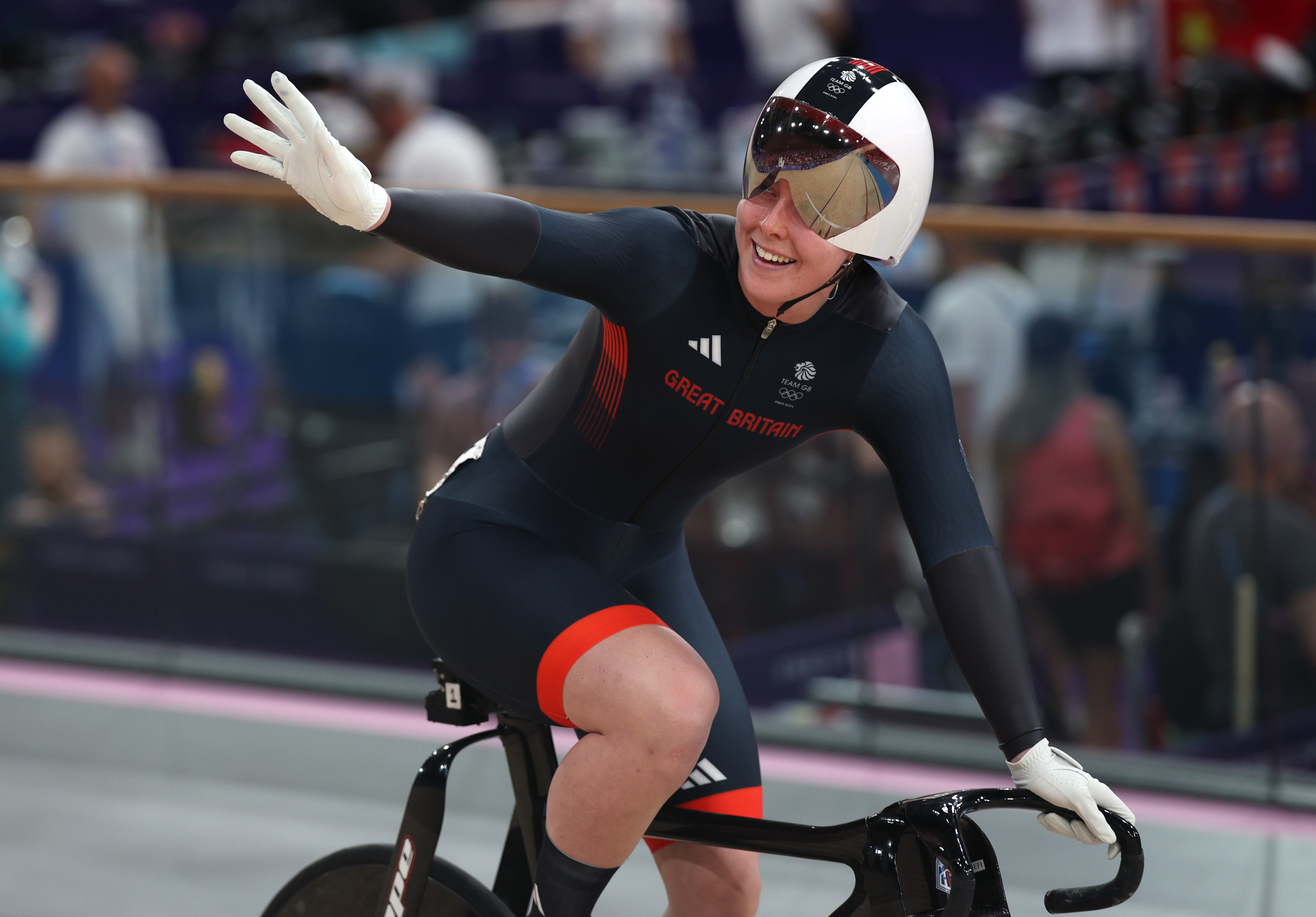 'I want to inspire young girls' - Olympic champion Emma Finucane on being a role model for the next generation
'I want to inspire young girls' - Olympic champion Emma Finucane on being a role model for the next generation22-year-old hopes to encourage new track cyclists in the run-up to the LA Olympics in 2028
By Tom Davidson Published
-
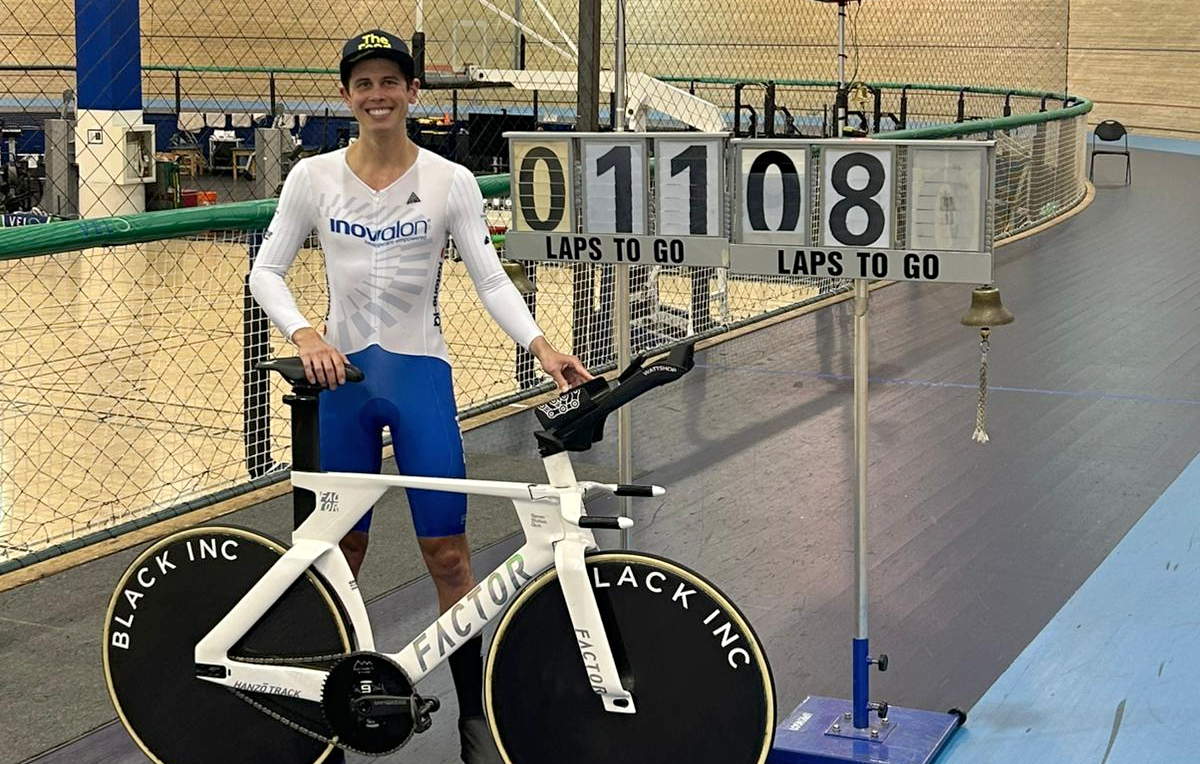 I was told I'd never ride a bike again, now I hold 12 cycling world records
I was told I'd never ride a bike again, now I hold 12 cycling world recordsFormer US Olympic hopeful Ryan Collins is a master of six-hour challenges
By Tom Davidson Published
-
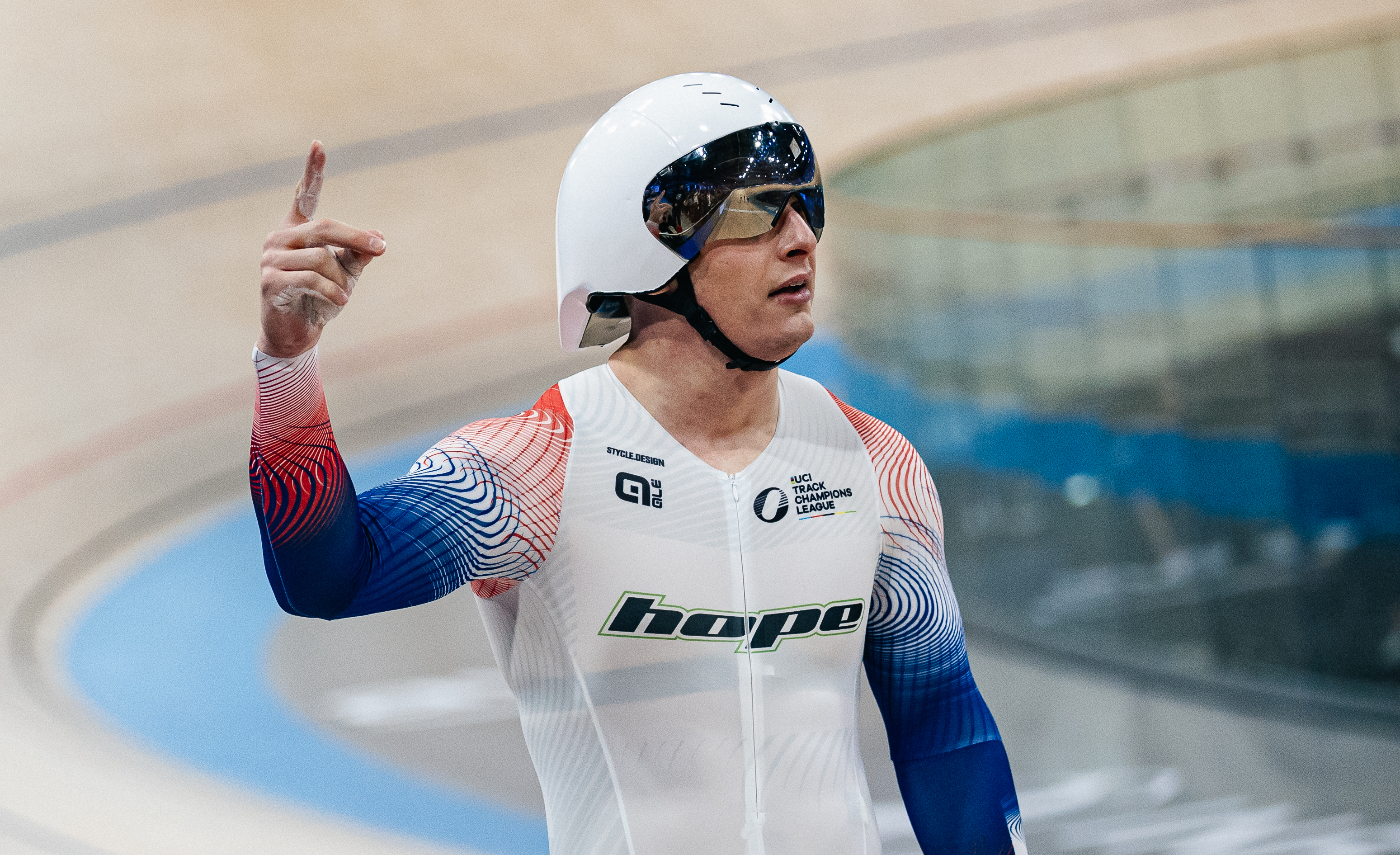 'Just words on a piece of paper' - Matthew Richardson responds to Australia ban and sanctions
'Just words on a piece of paper' - Matthew Richardson responds to Australia ban and sanctionsTrack sprinter who switched nationality to GB hopes fallout can be 'put to bed'
By Tom Davidson Published
-
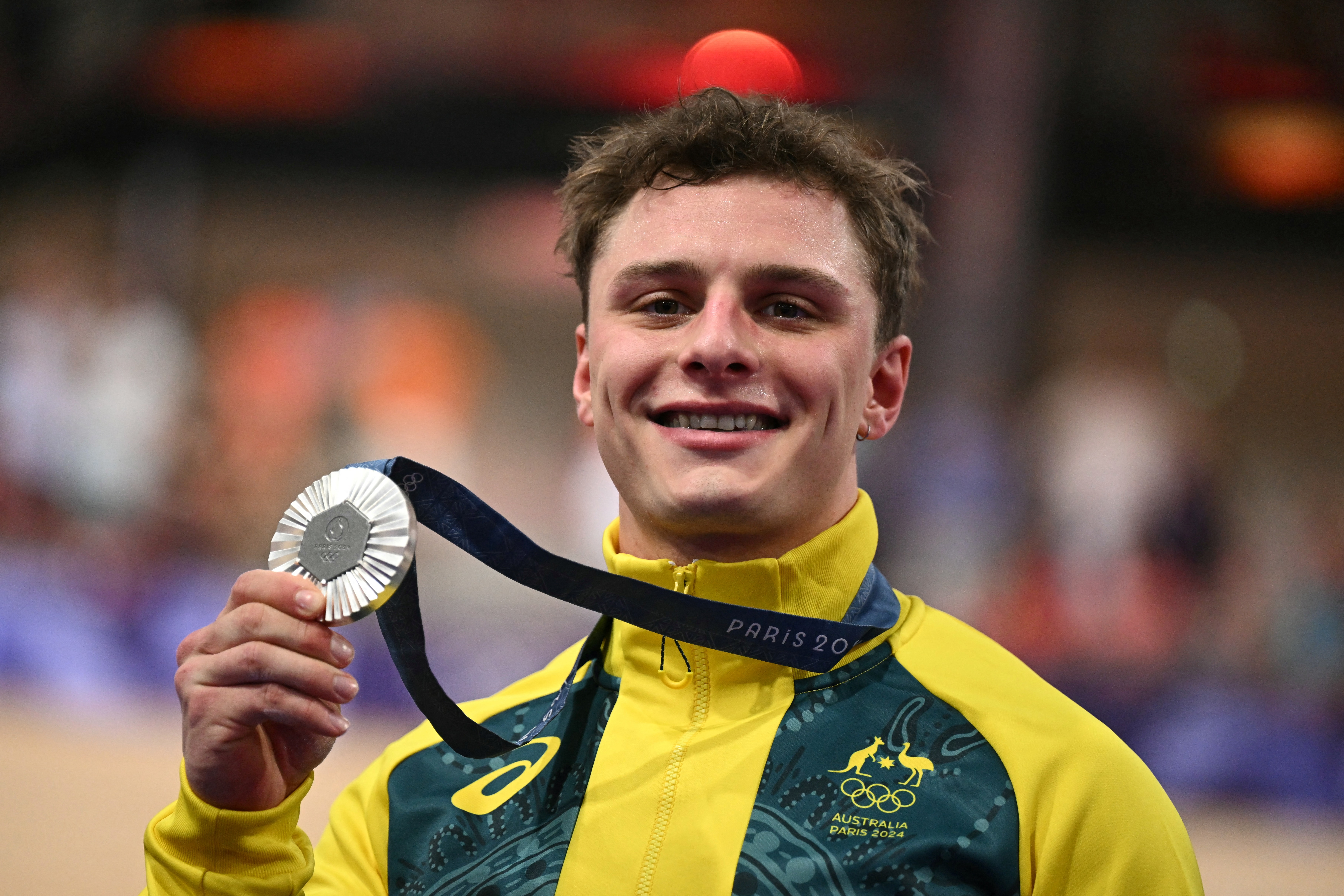 Olympian Matthew Richardson banned for life by Australia
Olympian Matthew Richardson banned for life by AustraliaTrack sprinter swapped nationality following Paris Olympics, and now competes for Great Britain
By Tom Davidson Published
-
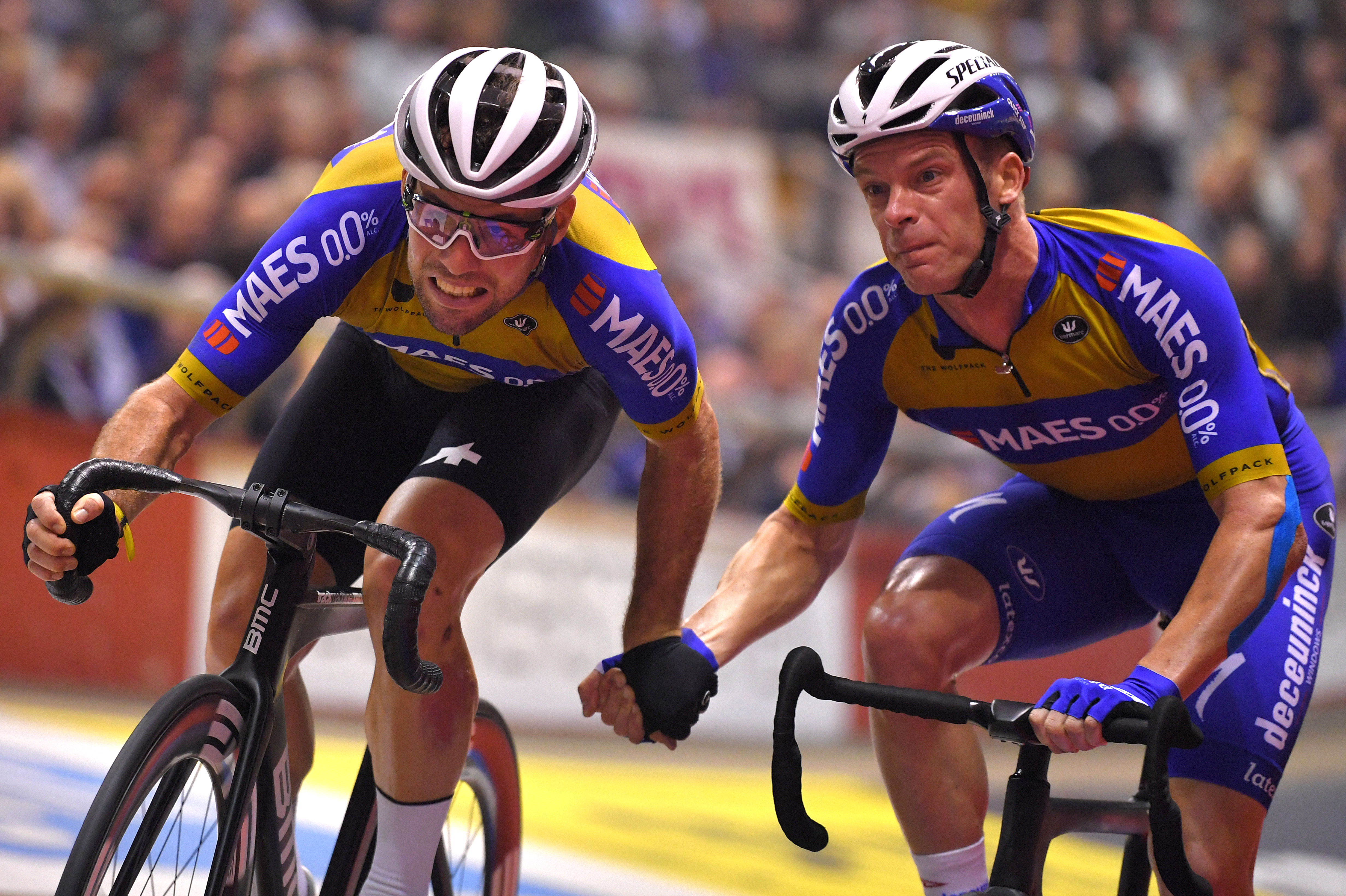 Six-day events no longer have to last six days, UCI rules
Six-day events no longer have to last six days, UCI rulesRegulation update gives track racing organisers more freedom over duration
By Tom Davidson Published
-
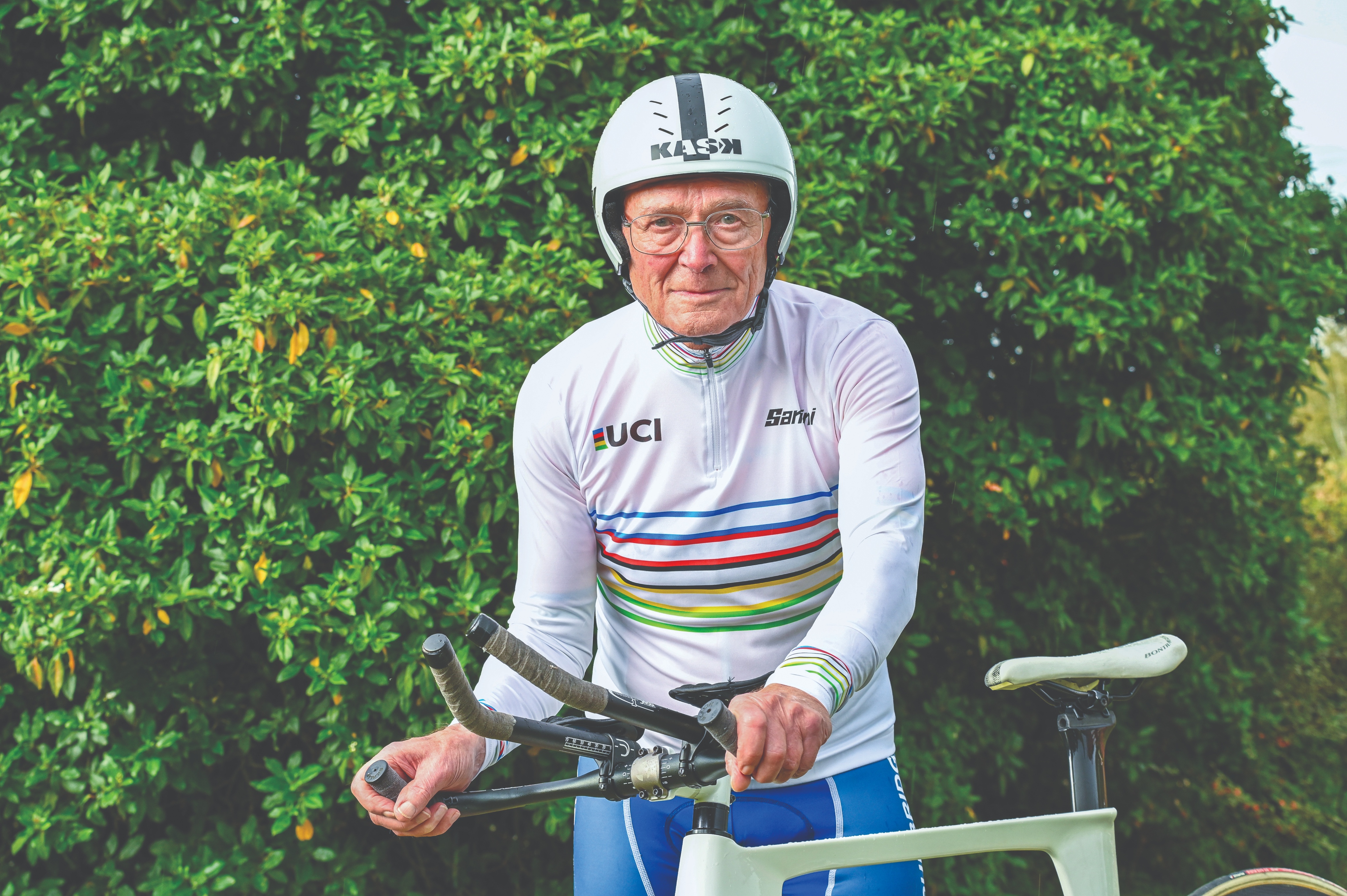 90-year-old cyclist sets sights on four world records
90-year-old cyclist sets sights on four world recordsThree-time Masters world champion Walter Fowler is far from ready to slow down yet
By Tom Davidson Published
-
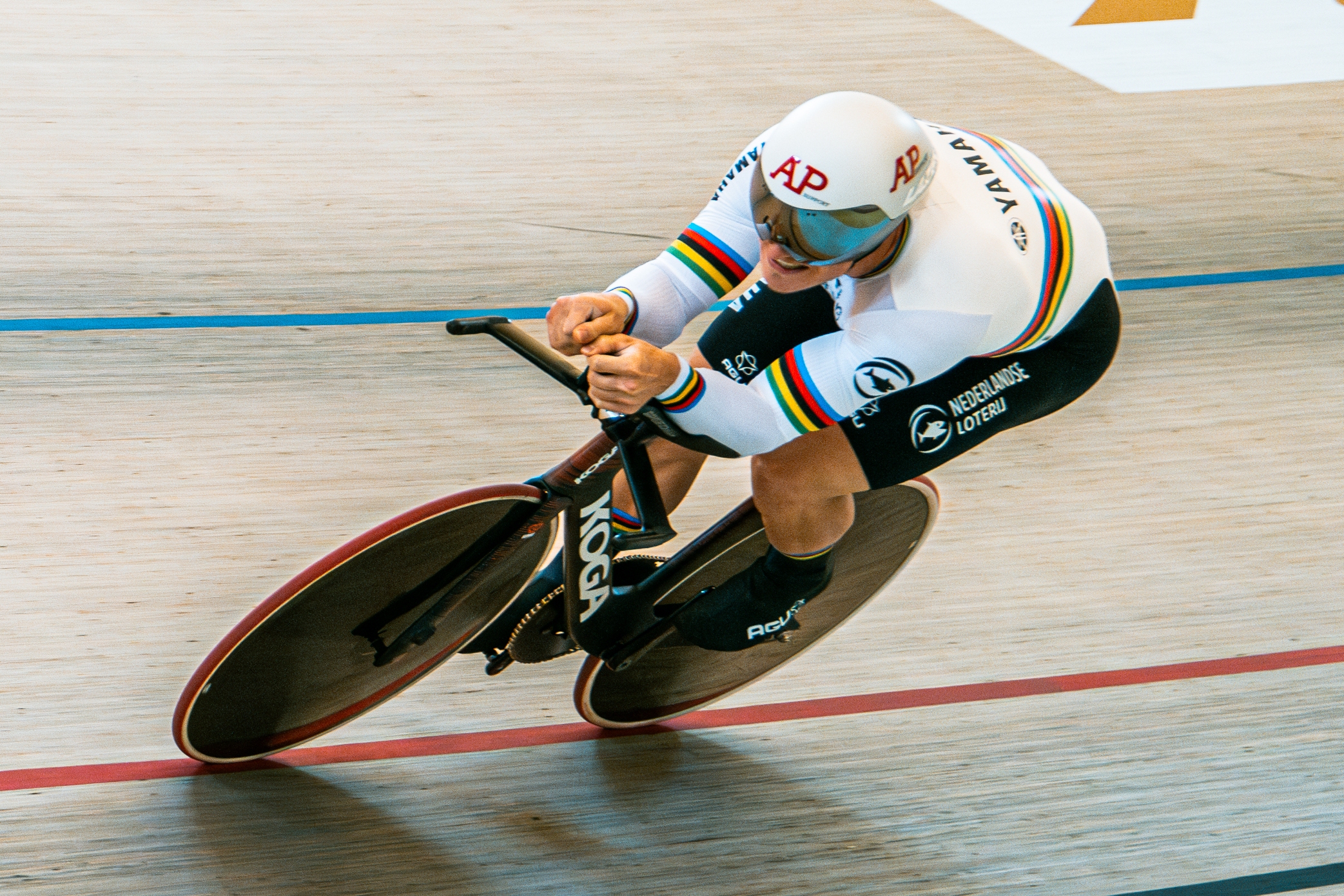 'I will hopefully not be forgotten': How Jeffrey Hoogland broke track sprinting's oldest record
'I will hopefully not be forgotten': How Jeffrey Hoogland broke track sprinting's oldest recordLast October, Jeffrey Hoogland roared to a new kilometre time trial world record. Tom Davidson spoke to the Dutchman and his team to find out what it took
By Tom Davidson Published